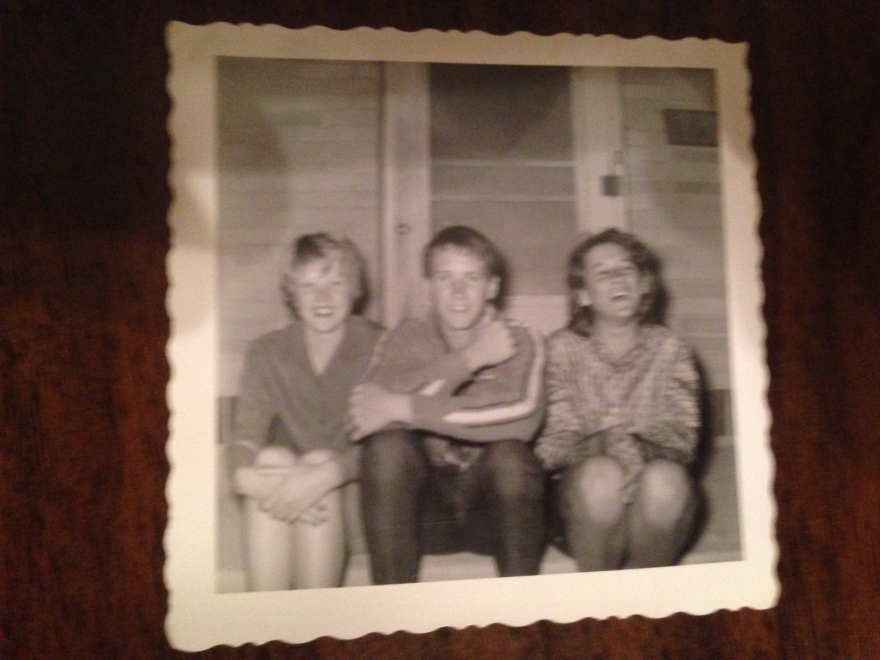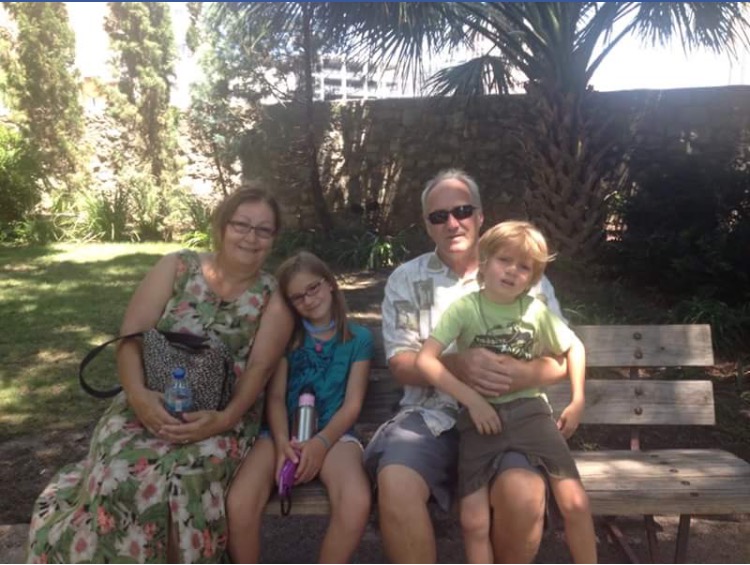
Steve Robins, born in 1950, grew up in southern California until the age of ten. Robins then had to move once a year due to his father’s job. He graduated from high school in 1968. After graduation, Robins traveled with the carnival as a gamer runner until he was drafted in 1969. Robins never went overseas to Vietnam, however, because the army didn’t really know what to do with him, he was assigned to the motor pool. After being released from the army two years later in 1971, he went back to the carnival and traveled with them for a couple more years. After spending time in Denver, Colorado, he met and married his first wife and moved to Quebec, Canada. There he faced many prejudices being an American during one of the separatist movements. He had his first child in Canada, but Robins could find himself happy there. After moving back from Canada he planted roots in Colorado for 23 years. He and his first wife divorced. Robins met his second wife, Rebecca, who he is still married to today. Robins and his wife, Mrs. Robins’, ended up in Padre Island, Corpus Christi due to his wife’s allergies, Corpus Christi being the most friendly place for her. They have resided in Corpus Christi for three years. Despite his heavily loaded history, Robins associates his story of freedom with the ability of doing what he wants, when he wants, as long as it does not cause pain or problems for ever. This was the case when he was young, except these freedoms where more centered around freedom of speech and association.
One of the key parts in Robins’ life was the draft; Steve Robins’ at the time resided in Missouri when his letter was sent, however Robins was in the process of moving. When the draft letter arrived to his past residence in Missouri, he had already moved back to California; the letter was forwarded to California and he was sent to two different forts for basic training, Fort Ord, California and Fort Riley, Kansas. He was later assigned to the motor pool. Like many other young, American men, he was drafted into the war due to the conflict in Vietnam. There were many men who fled and tried to out run the government because they didn’t want to fight in the war, however, when Robins was asked about how he felt when he was drafted he simply stated, “Really, I didn’t Care.” (Robins)
This experience of Robins’ life reflected a lot of others during the drafts of 1969. The 1969 draft lottery selected males born between 1944 and 1950. (Bergan) The draft lottery, established under Nixon, caused great resistance to the war. Requiring drafted men who did not want to serve lowered the support of the war, despite the propaganda that was placed all throughout America. (Atwood) This war and its attempt to combat communism had very little support. “It escalated and just got worse from there…. This particular war, I don’t know if anything good really came out of it.” (Robins) This was a very popular idea among many youths, drafted or not.

After Robins was released from the army, he attended many protests in an attempt to stop the war in Vietnam. With the support of the war going down, more people decided to join the anti-war movement. Robins stated, “I mainly went there because there would always be girls, but I really did mean what I stood for,”(Robins) Like others who partook in these protests, this was a time for the freedom of speech, many were students and a large portion of these protest took place at public universities. This freedom of speech movement of the students gained the attention of the media on a nation level. (Lieberman)
These campus protests had caused a major shift in the role the youth played in politics. The anti-war movement gave voices to the students of America. (Grose) They were able to speak out against what they saw as unjust. “During the 1970s there was a huge rise in student protest the were against the Vietnam. These people were just standing up for what was right.” Robins wanted to seek justice for those who were sent to fight in a war they never asked for. “The politicians get involved in stuff that the people have to clean up,” Robins stated.
Although for an extended amount of time, his ideas of freedom were centered around freedom of speech, as he grew older, his ideas of freedom became more focused around his relationship with god. Christianity, is just as important than anything else that he associates with freedom. Robins stated, “Freedom to worship, because in certain societies. That is a huge freedom for me, there are others, but that is a huge one for me.” (Robins) This change in the ideas of freedom originated his time in Quebec Canada. Due to the separatist movement, Steve was treated poorly by some of the natives or Québécois. This movement caused some of the people of Quebec to be hostile with English speakers, Americans, and other immigrants. “Once my car broke down on the side of the road, and a man came down the road in his car, asked me if I spoke French and when I said no, he just drove away without helping me.” (Robins) This feeling of being unwelcome was one of the reasons that the he decided to move back to America.
This very small fraction of Steve Robins life is a testament to what occurred during the Vietnam War, and more specifically, the drafting and protesting aspects of it. He experienced both sides of what was going on during the 1960s and 1970s. He was drafted and he protested, and was able to give a clear statement and opinion on both aspects. This experience shines light onto how people acted and thought during the time, as well giving people the ability to understand the 1960s and 1970s as well as other events such as the separatist movement in Canada in the 1980s.
Work Cited
BERGAN, DANIEL E. “The Draft Lottery and Attitudes Towards the Vietnam War.” Public Opinion Quarterly, vol. 73, no. 2, Summer2009, pp. 379-384. EBSCOhost, manowar.tamucc.edu/login?url=http://search.ebscohost.com/login.aspx?direct=true&db=a9h&AN=43084172&site=ehost-live&scope=site.
Grose, Andrew. “Voices of Southern Protest during the Vietnam War Era: The University of South Carolina as a Case Study.” Peace & Change, vol. 32, no. 2, Apr. 2007, pp. 153-167. EBSCOhost, doi:10.1111/j.1468-0130.2007.00424.x.
Atwood, Paul L. “Called to Serve: Stories of Men and Women Confronted by the Vietnam War Draft.” Journal of Contemporary Asia, vol. 42, no. 3, Aug. 2012, pp. 527-530. EBSCOhost, doi:10.1080/00472336.2012.687639.
Lieberman, Robbie and David Cochran. “We Closed Down the Damn School: The Party Culture and Student Protest at Southern Illinois University during the Vietnam War Era.” Peace & Change, vol. 26, no. 3, July 2001, p. 316. EBSCOhost, manowar.tamucc.edu/login?url=http://search.ebscohost.com/login.aspx?direct=true&db=a9h&AN=4687430&site=ehost-live&scope=site.
Robins, Steve. Personal interview. March 26, 2017